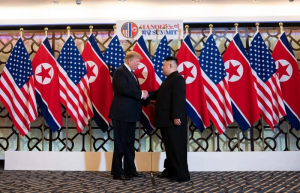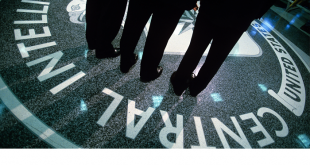In the complex and often unpredictable arena of international politics, few figures have embodied a combination of volatility, impulsiveness, and an unyielding pursuit of dominance quite like the U.S. President Donald J. Trump. From the outset of his political rise, Trump has defied conventional diplomatic norms, eschewing traditional multilateralism in favor of a brash, often unilateral approach that centers on what he perceives as American strength and leverage. His presidency has been characterized by a striking blend of irascibility, inconsistency, and an unapologetic willingness to challenge not only adversaries but long-standing allies and international institutions.
Trump’s foreign policy decisions frequently reflect a transactional worldview wherein alliances are treated as business deals and international agreements as negotiable instruments rather than binding commitments. His sudden policy reversals and unpredictable public statements have often caught both foreign governments and his own administration off guard, contributing to a climate of uncertainty on the global stage. Whether it was threatening to withdraw from NATO, engaging in direct diplomacy with North Korea’s Kim Jong-un, or unilaterally abandoning the Iran nuclear deal, Trump has consistently demonstrated a readiness to disrupt established diplomatic frameworks in pursuit of what he termed “America First.”
Underlying much of this behavior is a persistent drive to project American power and dominance, often framed through a zero-sum lens in which other nations’ gains are seen as America’s losses. This approach not only strains traditional alliances but also emboldens rival powers to test the limits of U.S. influence. Trump’s continued commentary on global affairs often laced with nationalist fervor, conspiracy theories, and combative rhetoric has sustained his influence over both domestic politics and America’s image abroad.
Donald Trump’s approach to international politics has left an indelible mark on the global order redefining the role of the U.S. president in foreign affairs and challenging long-held assumptions about America’s place in the world. Whether viewed as a necessary course correction or a destabilizing force, his legacy remains a subject of intense debate among scholars, diplomats, and global leaders alike.
A Leadership Marked by Inconsistency and Impulsiveness
One of the most defining and destabilizing features of Donald Trump’s approach to governance has been his erratic and often impulsive decision-making process. In his presidency, Trump has demonstrated a penchant for issuing sweeping announcements, frequently via social media, that seem to bypass conventional channels of consultation, deliberation, and strategic planning. His directives often emerge suddenly, with minimal coordination among advisors, departments, or allied governments, only to be walked back, contradicted, or significantly altered days or even hours later.
A prime example of this inconsistency was his recent abrupt decision to halt sending armaments to Ukraine. Yet, in a reversal that confused observers, he later reinstated what he previously revoked, this time framed as a necessary move to support regional stability and counter Russian aggression. The inconsistency in rationale and execution sends mixed signals to both allies and adversaries, complicating America’s diplomatic credibility and weakening its moral authority on issues of corruption and security.
At the heart of this leadership style is a tendency to prioritize gut instinct and public optics over institutional advice and long-term strategy. Trump’s aversion to detailed briefings, his frequent sidelining of experts, and his preference for loyalty over qualification in appointments all contribute to a governing style that often appears reactive rather than deliberative. His decisions are frequently shaped by emotional impulses, cable news coverage, or the latest developments on social media, rather than grounded policy frameworks.
This erratic governance erodes confidence among key stakeholders such as foreign diplomats, domestic policymakers, and even members of his own administration and party. Allies find themselves uncertain of America’s commitments, unsure whether Trump’s statements reflect enduring policy or fleeting sentiment. Rivals, in turn, exploit the chaos, calculating that the lack of consistency weakens U.S. deterrence and opens space for maneuver.
Trump’s impulsive leadership style underscores a deeper philosophical departure from the norms of presidential governance. Rather than viewing policy as a product of institutional continuity and strategic foresight, Trump often treats it as a personal brand which is adaptable, performative, and transactional. While this approach resonates with segments of the electorate that prizes disruption and outsider rhetoric, it comes at the cost of stability, predictability, and trust which are hallmarks of effective leadership on both the domestic and global stage.
Statements Without Solid Foundations
A hallmark of Donald Trump’s communication style has been his propensity for making spontaneous, often unvetted public statements. These remarks, frequently delivered via social media or off-the-cuff during press briefings, have become emblematic of his broader approach to leadership: instinctive, performative, and often divorced from the rigor of diplomatic or policy expertise. This tendency to speak without a solid foundation in fact or strategy has had far-reaching implications, particularly in the high-stakes realm of international relations.
Whether addressing global crises, commenting on foreign leaders, or reacting to unfolding geopolitical developments, Trump has repeatedly demonstrated a willingness to weigh in with bold, simplistic declarations often without consulting advisors or considering the broader consequences. His statements are frequently marked by a lack of depth, historical context, or appreciation for the complexities of international diplomacy. While such rhetoric may energize his political base, it has also contributed to a series of diplomatic missteps, strategic ambiguities, and reputational costs for the United States.
One of the most striking examples of this was Trump’s handling of tensions with North Korea during his first presidential term. In 2017, amid escalating provocations from Pyongyang, Trump famously threatened to unleash “fire and fury like the world has never seen,” a comment that alarmed allies and led to fears of a potential military confrontation. Just months later, he pivoted dramatically, referring to Kim Jong-un as a “very talented” leader and engaging in unprecedented direct diplomacy. While the summits that followed were historic, they ultimately yielded no substantive progress on denuclearization and the whiplash in tone and content raised serious concerns about the coherence of U.S. strategy in the region.

US President Donald Trump and North Korean leader Kim Jong-un shake hands at the Hanoi Summit in Vietnam on February 27, 2019. The summit ended without a deal after the United States demanded again North Korea’s unilateral denuclearization. (Credit: White House)
Similarly, Trump’s remarks on Iran ranging from threats of total destruction to contradictory messages about his willingness to negotiate exacerbated an already volatile situation. His unilateral withdrawal from the Joint Comprehensive Plan of Action (JCPOA), without a clear alternative or allied support, was accompanied by a stream of inflammatory rhetoric that further strained relations with European partners and emboldened hardliners within Iran. The lack of consistency in messaging undermines the credibility of American diplomacy and reduces the likelihood of achieving long-term regional stability.
Trump’s confrontational and dismissive tone extends to traditional allies as well. He frequently casts doubt on the reliability of NATO, questions the value of multilateral agreements, and publicly criticizes the leaders of Canada, Germany, and the United Kingdom, sometimes over minor grievances or domestic political considerations. These statements, often made without consultation or preparation, inject uncertainty into long-standing alliances and force diplomats to repeatedly reassure global partners of America’s continued commitment.
This pattern of impulsive and poorly substantiated communication has had lasting effects. International partners have grown wary of taking U.S. statements at face value, unsure whether they reflect actual policy or transient personal opinion.
Diplomats and negotiators often find themselves scrambling to interpret or walk back the president’s remarks, adding confusion to already delicate discussions. Moreover, such unpredictability has given strategic advantages to rival powers like Russia and China, who have capitalized on the perceived instability of American leadership.
In sum, Trump’s off-the-cuff style, while effective in commanding media attention, has revealed significant vulnerabilities in the realm of international diplomacy. The absence of a disciplined, fact-based approach to communication has not only damaged U.S. credibility but also eroded the norms of presidential responsibility in global affairs. In a world where words from a U.S. president can shift markets, trigger diplomatic crises, or influence the behavior of authoritarian regimes, the cost of ungrounded statements is more than rhetorical but strategic.
The Drive for Global Supremacy Through Contradiction
A defining characteristic of Donald Trump’s approach to global leadership has been his apparent drive to position himself not merely as the head of state of the United States, but as a dominant figure on the world stage, often through a deliberate strategy of contradiction and disruption. Central to this approach is a pattern of publicly distancing himself from the consensus of Western allies, undermining longstanding international agreements, and rejecting the collaborative norms that have shaped global diplomacy since World War II.
Rather than working in tandem with allies, Trump often chooses to highlight differences and stoke divisions. He repeatedly criticized NATO, questioning its relevance and accusing member states, particularly Germany, of not contributing their “fair share.” These public rebukes, often delivered in inflammatory terms, serve not only to embarrass allied leaders but to reframe traditional partnerships as lopsided business transactions rather than shared security commitments. Even during high-profile international summits such as the G7 or G20, Trump frequently used his platform to challenge the legitimacy or utility of multilateral forums, often arriving late, leaving early, or refusing to sign final communiqués that reflected broad international consensus.
This pattern extended to major international agreements that have been cornerstones of U.S. foreign policy. Trump unilaterally withdrew from the Paris Climate Accord, arguing it disadvantaged the American economy, even as virtually every other nation on earth remained committed. He pulled the U.S. out of the Iran nuclear deal (JCPOA) despite opposition from European allies and without securing a viable alternative. He also imposed sweeping tariffs not just on strategic rivals like China, but on allied nations, igniting trade tensions with the European Union, Canada, and Mexico. Each of these moves framed as a defense of American sovereignty served to distance the U.S. from global consensus, reinforcing Trump’s image as a leader unafraid to break with tradition.
At the core of this negativistic strategy is a desire to project strength and unilateral control. By rejecting widely accepted positions and dismissing the input of other Western leaders, Trump positions himself as an outsider who is not bound by precedent, protocol, or multilateral obligations. His provocative statements which often assert that previous leaders had been “weak” or had “given away” American advantage are designed to elevate his own stature, casting him as the ultimate dealmaker and strongman in a world of cautious bureaucrats and ineffective diplomats.
However, the costs of this approach are significant. By consistently challenging allies and international norms, Trump has created a climate of uncertainty that weakens trust in American leadership. European powers have begun exploring greater autonomy in defense and diplomacy, wary of relying too heavily on a U.S. administration that might abruptly reverse course. Global initiatives, particularly on climate change, arms control, and pandemic response, have suffered from the absence of coordinated U.S. leadership. Even among close allies, Trump’s combative and unpredictable style often leads to diplomatic fatigue, with many leaders preferring to wait out his term rather than engage in meaningful long-term collaboration.
Critics argue that Trump’s strategy of contradiction and disruption, while effective at drawing headlines and rallying domestic supporters, ultimately undermines the very goals it purports to advance. Rather than asserting American supremacy, it leads to diminished influence, erodes alliances, and reduces credibility in international forums. On critical issues like climate change, cyber security, arms proliferation, and global trade regulation, the absence of a reliable U.S. partner hampers collective efforts to address challenges that no single nation, no matter how powerful, can solve alone.
Trump’s unstable posture on the world stage is not merely a rejection of diplomacy as usual, but a calculated attempt to redefine global leadership in his own image.
Yet, in prioritizing personal stature and perceived strength over collaboration and consistency, he may have compromised the very foundations of American global power.
The Broader Impact on Global Politics
Donald Trump’s tumultuous and unconventional leadership style has reverberated far beyond the confines of U.S. domestic politics, leaving a lasting imprint on the international landscape. His presidency marks a profound shift in how global power is wielded, communicated, and perceived ushering in a period of heightened uncertainty, disruption of established norms, and a reevaluation of international alliances and strategies.
One of the most immediate consequences of Trump’s erratic policymaking and impulsive rhetoric has been a decline in the predictability and reliability of the United States as a global actor. Historically, even when administrations changed, the U.S. maintained a broad continuity in its foreign policy commitments, particularly to democratic allies and international institutions. Under Trump, however, this consistency has been replaced by a transactional, often personalist approach to diplomacy where long-standing commitments can be questioned, reversed, or ignored with little warning.
This unpredictability sends shockwaves through traditional alliances. European powers begin to openly question the dependability of U.S. leadership, prompting discussions about strategic autonomy and calls for stronger independent defense mechanisms, such as the European Union’s renewed interest in building its own security infrastructure. In Asia, key partners like Japan and South Korea are left uncertain about America’s commitment to their security, especially amid Trump’s fluctuating stance on North Korea. Even Canada and Mexico, long considered stable allies, have found themselves targets of trade wars and political rebukes.
Beyond the geopolitical chessboard, Trump’s style has also inspired and emboldened a new generation of populist and nationalist leaders. They have drawn explicit or implicit validation from Trump’s approach prioritizing national sovereignty over multilateralism, attacking the press and judiciary, and fostering divisive identity-based politics. In doing so, they have contributed to a broader global trend of democratic backsliding and institutional erosion.
Trump’s emphasis on personal dominance, public spectacle, and confrontational tactics has challenged the foundational principles of diplomatic engagement:
discretion, consistency, and mutual respect. International summits often devolve into contentious media spectacles, and traditionally behind-the-scenes negotiations are overshadowed by presidential tweets and off-script remarks. This performative style makes it increasingly difficult for diplomats and policymakers to construct stable, long-term strategies to address shared global challenges such as climate change, migration, cybersecurity, and pandemics.
Perhaps most critically, Trump’s presidential term leaves the international community grappling with a sense of systemic instability. The idea that global leadership can shift so dramatically based on individual personality rather than institutional policy has raised questions about the durability of international commitments and the efficacy of long-standing alliances. It forces other nations to rethink their own foreign policies, not just in relation to the U.S., but in terms of building new coalitions and hedging against future volatility in American leadership.
The broader impact of Trump’s presidency on global politics cannot be understated. It catalyzes a transition from a relatively rules-based international order toward a more fragmented, unpredictable, and personality-driven global environment. While some view this disruption as a long-overdue recalibration, many more see it as a destabilizing force that weakened collective efforts to confront the world’s most pressing problems. The aftershocks of this period continue to shape diplomatic calculations and geopolitical alignments well beyond his time in office.
Conclusion
Donald Trump’s leadership style, marked by volatility, impulsiveness, and a relentless pursuit of dominance, has reshaped the landscape of international relations. His flip-flopping policies, impulsive statements, and contradictory stances serve to elevate his personal image while often undermining the very alliances and institutions necessary for global stability. Whether viewed as a disruptive force or a bold outsider, Trump’s approach underscores the complex and often unpredictable nature of modern leadership, raising questions about the future of diplomacy and American global influence.
In the end, Trump’s tumultuous tenure demonstrates that leadership rooted in unpredictability and the desire for supremacy can have profound and lasting effects, shaping the course of international history in ways both visible and subtle.
By: Prof. Ruel F. Pepa
Prof. Ruel F. Pepa is a Filipino philosopher based in Madrid, Spain. A retired academic (Associate Professor IV), he taught Philosophy and Social Sciences for more than fifteen years at Trinity University of Asia, an Anglican university in the Philippines. He is a Research Associate of the Centre for Research on Globalization (CRG).
 Tehran Institute For International Studies tiis
Tehran Institute For International Studies tiis



